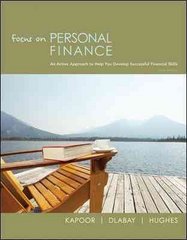
II. Problem You were asked to investigate the performance of a service company. The company opens 8- hours,5-days-a-week. Customers arrive at a rate of 10cutomers/hour (Poisson distribution); the first patient comes after 10 minutes from opening. The company has five different stations (like nodes in a network), where customers might be directed for service. All patients first check-in at the reception with a single receptionist; Check-in time has a Uniform distribution with parameters 0.3 and 0.6 (minutes), respectively. From there, they might go to the accountant's office to pay bills (probability 70%), or to the complaint's office (probability 25%), or the records office (one worker) to check information. Service time in the paying bills station (one accountant) is Triangular with a minimum of 1.5, most likely 3, and a maximum of 5 minutes. There are three types of complaints with probabilities (45%, 35%, and 20%) for the three types. The complaints station has two workers, and they can handle the three types of complaints. Every kind of criticism takes a different time in service; the first type takes Uniform (2,4), while the second type takes triangular (4,7,13), and the third takes expo (25) (all in minutes). Customers who finished their complaints might either leave the company (71%) or go to pay bills. People who are done with paying bills either leave the company with a probability of 90% or visit the records office and then leave. All customers who go to the records office leave the company after they are done. Records service time is uniformly distributed with a minimum of 2 minutes and a maximum of 7 minutes. The travel time for customers between each of the 5 stations is shown in table 1 below. Records Check-Out Table 2 Travel Time between Stations (minute) To Check-In Accountant From Check-In Const 0.5 Accountant Complaints Office Expo(0.6) Records TRIA(1, 2, 3) Complaints Office EXPO(0.5) UNIF(0.5, 1) Expo(1.5) EXPO(1) EXPO(0.5) Const 0.5 Const 0.5 TRIA(0.5, 1, 2) UNIF(1, 1.5) Expo(1.5) The company closes its doors after 8 hours of work; however, all customers who have entered the company before closing doors should be served before workers leave home. Workers at the offices with more than workers take their break in two parts, the first part between 12:00 pm 12:00 pm and the second between 12:30 1:00 pm. workers can't leave customer once they have started the consultation process, and if break time is due, they will take a full break once they finished service. Queues for each station are first-in, first-out, and the movement times are given in Table 1 above. Simulate 100 replications with each replication length equals to 7 working days. II. Problem You were asked to investigate the performance of a service company. The company opens 8- hours,5-days-a-week. Customers arrive at a rate of 10cutomers/hour (Poisson distribution); the first patient comes after 10 minutes from opening. The company has five different stations (like nodes in a network), where customers might be directed for service. All patients first check-in at the reception with a single receptionist; Check-in time has a Uniform distribution with parameters 0.3 and 0.6 (minutes), respectively. From there, they might go to the accountant's office to pay bills (probability 70%), or to the complaint's office (probability 25%), or the records office (one worker) to check information. Service time in the paying bills station (one accountant) is Triangular with a minimum of 1.5, most likely 3, and a maximum of 5 minutes. There are three types of complaints with probabilities (45%, 35%, and 20%) for the three types. The complaints station has two workers, and they can handle the three types of complaints. Every kind of criticism takes a different time in service; the first type takes Uniform (2,4), while the second type takes triangular (4,7,13), and the third takes expo (25) (all in minutes). Customers who finished their complaints might either leave the company (71%) or go to pay bills. People who are done with paying bills either leave the company with a probability of 90% or visit the records office and then leave. All customers who go to the records office leave the company after they are done. Records service time is uniformly distributed with a minimum of 2 minutes and a maximum of 7 minutes. The travel time for customers between each of the 5 stations is shown in table 1 below. Records Check-Out Table 2 Travel Time between Stations (minute) To Check-In Accountant From Check-In Const 0.5 Accountant Complaints Office Expo(0.6) Records TRIA(1, 2, 3) Complaints Office EXPO(0.5) UNIF(0.5, 1) Expo(1.5) EXPO(1) EXPO(0.5) Const 0.5 Const 0.5 TRIA(0.5, 1, 2) UNIF(1, 1.5) Expo(1.5) The company closes its doors after 8 hours of work; however, all customers who have entered the company before closing doors should be served before workers leave home. Workers at the offices with more than workers take their break in two parts, the first part between 12:00 pm 12:00 pm and the second between 12:30 1:00 pm. workers can't leave customer once they have started the consultation process, and if break time is due, they will take a full break once they finished service. Queues for each station are first-in, first-out, and the movement times are given in Table 1 above. Simulate 100 replications with each replication length equals to 7 working days







